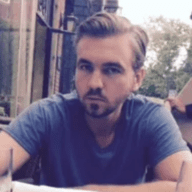Consensus is hard to come by in 2020. A growing distrust of institutions has coalesced with an unprecedented amount of information, giving rise to a culture of misinformation. Seemingly every fact is up for debate, every certainty can be conspiratorial propaganda, and every establishment has contrarians trying to tear it down. There is also a vast supply of incredibly useful information. The trick is distinguishing between what medical information is legitimate and what is not.
“A YouGov survey of more than 8,000 American adults suggested last year that as many as one in six Americans are not entirely certain the world is round.” This is how far apart worldviews have drifted—we cannot even agree on the shape of the world.
Now we are in the throes of a pandemic, and use of Dr. Google is at an all time high (this tongue-in-cheek term was coined by the medical community when doctors increasingly found themselves having to counter misinformation that patients found on the internet). Between social media sites that do nothing to prevent false claims, to leaders who don’t do a very good job leading, there is plenty of blame to go around. The real issue is that this phenomena of fake information can result in very real consequences.
According to a study recently published in the American Journal of Tropical Medicine and Hygiene, 800 people have died, whereas 5,876 have been hospitalized and 60 have developed complete blindness after drinking methanol as a cure for COVID-19. There are many more stories from around the world of people becoming sick and even dying because of faulty treatments or protective measures that had no scientific backing. The World Health Organization has coined this informational symptom an “infodemic,” which they define as, “an overabundance of information—some accurate and some not—that makes it hard for people to find trustworthy sources and reliable guidance when they need it.”
That said, there is an incredible upside to patients having access to information and community on the internet. The rare disease space, for example, is filled with members who actively collaborate with doctors to design systems of care because information on their diseases is so scarce. It is all about finding reliable sources.
In the opinion of medical geneticist Dr. Edward Wassman, “There are pros and cons when it comes to patients conducting their own research on the internet. It can potentially lead to problems, but overall I think the availability of information has had a positive impact on the public’s ability to understand their health. People have a responsibility to themselves and their loved ones to distinguish between legitimate sources and disinformation. So long as they make that distinction, they can take a more active role in the care they receive by educating themselves.”
Patient voice is a critical element of discovery when it comes to a disease, but it needs to be distilled into something that the public and the medical community can use as a tool. Taken as a whole, anecdotal information can be one of the most valuable sources of insight for drug developers and medical professionals looking to understand more about an illness. When the patient voice is cherry picked, or when charlatans are allowed to run wild, it can result in negative consequences. It is for this reason that TREND Community strives to find all the truth in the patient voice, while protecting it from the corruption of misinformation.

